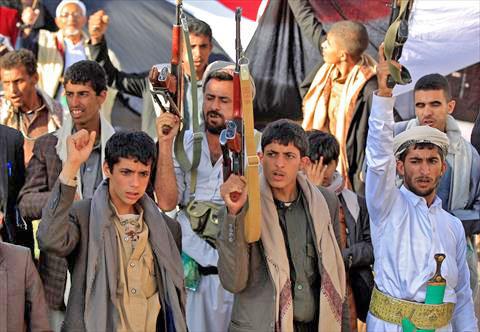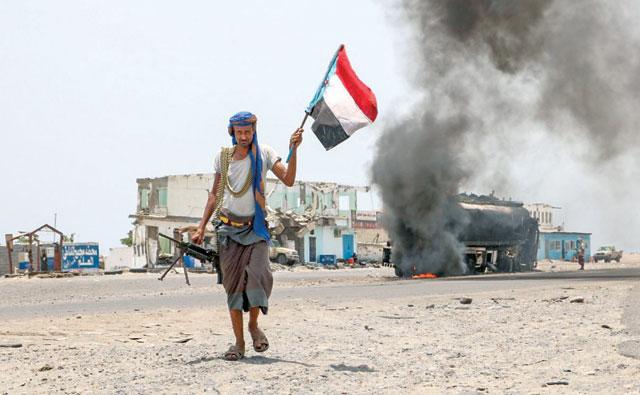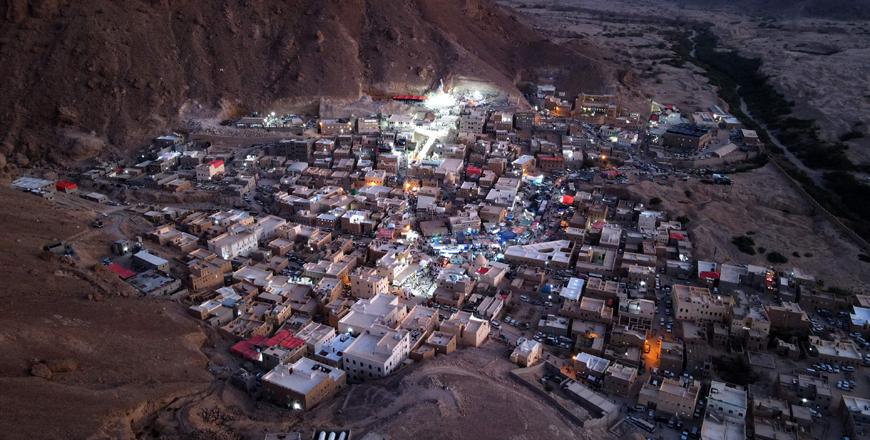You are here
Yemen gov't, separatists in power-sharing talks
By AFP - Oct 07,2019 - Last updated at Oct 07,2019

Supporters of Yemen's Shiite Houthi rebels chant slogans and raise Kalashnikov assault rifles as they gather for a rally in support of the group in the Houthi-held capital Sanaa on October 4 (AFP photo)
DUBAI — Yemen's internationally recognised government and southern separatists are holding indirect negotiations and are close to reaching a power-sharing agreement, sources from both sides said on Monday.
The two camps have been for weeks in indirect and discreet talks in Saudi Arabia's western city of Jeddah with the kingdom's mediation, an official from the separatist Southern Transitional Council (STC) told AFP.
The official, who spoke on condition of anonymity, said there has been "a lot of progress" in the past couple of days.
A Yemeni government source confirmed that talks between the two parties have been ongoing.
In August, fighting between the two camps — both of which are battling Yemen’s Iran-backed Houthi rebels — opened a new front in the country’s complex war.
But sources from both sides told AFP on Monday that they are close to reaching a power-sharing deal.
“The agreement would stipulate that the government return to Aden and that the Security Belt Forces be responsible for security under the supervision of the Saudis,” a source informed about the negotiations told AFP.
The source also said that the deal would include “the participation of the STC in government”.
The Security Belt Forces — dominated by the secessionist STC — in August took control of the southern city of Aden, which has served as the government’s base since it was ousted from the capital Sanaa by the Houthi rebels in 2014.
The clashes between separatists and government forces — who for years fought on the same side against the Houthis — have raised fears that the country could break apart entirely.
The coalition intervened in Yemen in March 2015 as the Houthi rebels closed in on Aden prompting Yemeni President Abed Rabbo Mansour Hadi to seek exile in Saudi Arabia.
The conflict has since killed tens of thousands of people — most of them civilians — and driven millions more to the brink of famine in what the United Nations calls the world’s worst humanitarian crisis.
Related Articles
RIYADH — Yemen's internationally recognised government will sign an agreement with southern separatists on Tuesday aimed at ending a conflic
RIYADH — Gulf Arab countries are seeking to host rare talks between Yemen's warring parties, including the Iran-backed Houthi rebels, in Riy
RIYADH — Yemen's southern separatists have struck a power-sharing deal with the internationally-recognised government aimed at ending a conf















